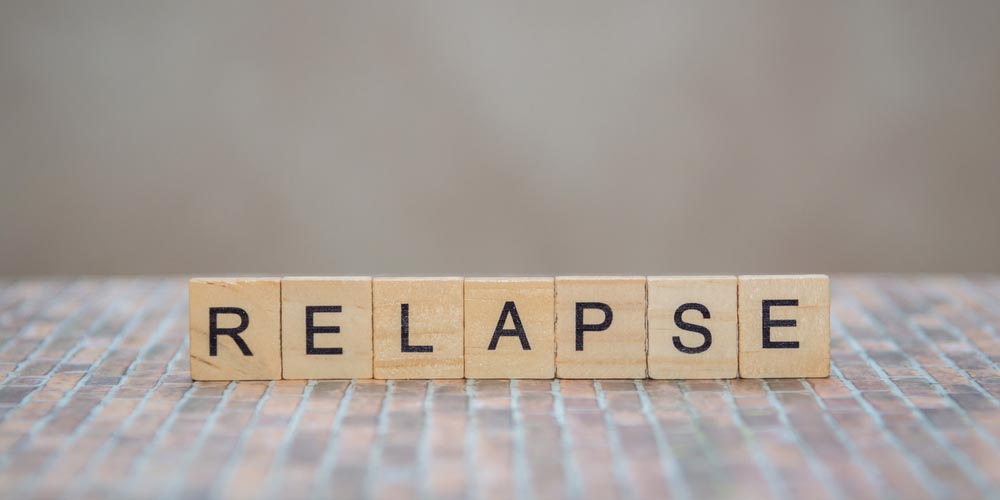Sometimes you have to take a step behind to emerge stronger. Similarly, weaning off drugs and attaining long-term recovery is an uphill task.
It is a life-transforming process. But people have to brace for relapses while trudging on the path to sobriety. It is wrong for people to consider relapse as a sign of failure.
In fact, it is a part of the healing process. Addiction relapse is pretty common in patients.
A study says, approximately 70 to 90% of people with severe drug addiction have experienced at least one, mild to moderate withdrawal symptom.
Definitely, that isn’t a sign of failure. Here are a few reasons that prove if you have a relapse, you haven’t failed:
Addiction is an illness
It is inevitable that drug or alcohol addiction will cause relapsing in many recovering addicts.
Addiction weakens the ability of the brain by driving the need to experience pleasure, creates cravings, and increases the person’s response to stress, leading to unpleasant emotions when these unusual cravings remain unsatisfied.
Experts have proven these statistics in their studies. Since addiction affects brain functioning, relapse is also a veritable part of it.
Relapse is a common phenomenon
According to National Institute on Drug Abuse (NIDA) statistics 40-60% people face withdrawal symptoms after completing treatment. The chances further rise to 50-70% for physically disabled people.
It indicates that facing withdrawal symptoms is a part of recovery. Instead of seeing it as a failure, you must also consider making some changes in the treatment.
Even the National Institute on Drug Abuse says people in recovery must seek professional assistance to alter or even return to treatment. Hence, relapse prevention strategies can be helpful while developing the treatment plan.
Recovery transforms lives
Overcoming the ill effects of addictive substances takes time, but recovery is also a reality.
Gaining a sober life and changing a harmful lifestyle is not a one-day process. Understandably, relapse can occur in between.
The addiction experts also agree that changing your life is the first step of the recovery process.
Change is difficult with the relapses along the way, but with constant support of loved ones and timely treatment at drug and alcohol rehab centers, anyone can regain the earlier healthy life.
Get the best out of a relapse prevention therapy (RPT)
Relapse prevention is a cognitive-behavioral approach. It helps patients to identify withdrawal symptoms and works proactively to reduce its chances with time.
The therapy was adopted as a maintenance program for treatment of addictive behaviors.
After wide success in the treatment modalities, it is now used as a standalone self-control program and designed to train people on how to anticipate and cope with withdrawal symptoms.
Relapse prevention therapy is usually grouped with coping skills training, cognitive therapy, and lifestyle modification. Coping skills training strategies focus on the behavioral and cognitive abilities of an individual. Cognitive therapy instructs how to reframe the mind for a habitual change. In the end, lifestyle modification strategies include meditation, exercise, and spiritual practices to strengthen a person’s coping capacity.
In medical practice, the coping skills training forms the base of relapse prevention therapy by:
- Understanding relapse as a process
- Identifying and effectively managing high-risk situations like addictive urges and cravings
- Implementing damage control procedures to minimize the side effects of relapse
- Continuing the treatment even after withdrawal symptoms
Evidence-based treatment is a prerequisite for successful recovery. RPT as a psychosocial treatment for alcohol and drug problems is highly effective.
Embark on a journey to recovery with the best rehabilitation center in India!
For whatever reasons that one starts abusing illicit substances, recovery becomes difficult if necessary treatment is not taken on time.
If you or your loved one is grappling with addiction and is now looking a sober lifestyle, Athena Behavioral Health is the right platform.
We, at Athena, offer comprehensive treatment programs, including continuing care and relapse prevention therapy. Reach us on our 24/7 helpline number 9289086193 or chat online with our team to get more updates about our treatment programs.
To know more about depression






